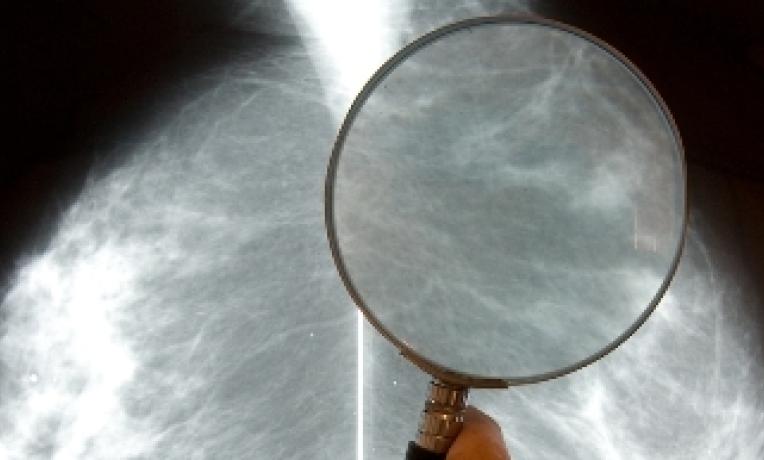October 2011: Breast cancer awareness month

1. The European Research Council already funds several projects related to breast cancer. Can you tell us what the ERC's added-value is in this field?
The ERC aims to support excellent scientists who propose excellent projects with an investigator-driven or “bottom-up” approach. Research funding from the ERC supports basic research that is higher risk than the work supported by specialist funding agencies with longer time-lines. It has therefore the potential to be of greater benefit in terms of providing major novel discoveries that could lead to new insights and ultimately to cures. There have been excellent examples of this in breast cancer research. In former times, the only treatment for breast cancer was surgery, and the main area of research simply concerned how much tissue to cut out. There was almost no understanding of the fundamental causes of breast cancer. This is exactly where the ERC's added-value now stands for as it funds excellent basic research in many fields, including Life Sciences.
2. What have been the major breakthroughs in breast cancer research in recent years?
One of the earliest fruits of basic research on breast cancer was the discovery that some forms of the disease depended on hormonal signals, whose growth could be stopped by hormone antagonists like tamoxifen. Next came the discovery of tumours that expressed high levels of the growth factor ErbB2/Neu on the surface of their cells, and the development of humanized monoclonal antibodies that blocked the growth of such cells – called Herceptin – which proved to be a very effective therapeutic agent in the right cases. The study of the genetics of inheritable cases of breast cancer uncovered the existence of two genes, called BRCA1 and BRCA2 both of which are involved in repairing broken DNA molecules. In the last few years, some very effective therapies exploiting the “Achilles heel” of such tumours have emerged. They come from studies of the role of an enzyme called PARP (polyADP ribose polymerase), which is activated by damaged DNA. It turns out that inhibitors of PARP are very effective at killing cells that are defective in people with hereditary BRCA1 and BRCA2 cancers. At the moment, clinical trials are underway to test the efficacy of PARP inhibitors. This could result in the future development of new treatments for breast cancer.
3. You are obviously passionate about curing cancer, having dedicated your entire career to studying it and the mechanisms of cell growth. Do you think that advances in research could one day prevent breast cancer or reduce mortality rates?
Actually, my research is very basic and is concentrated on understanding fundamental problems of the control of cell division. I hope, however, that I have said enough to convince people that rational and effective treatments for cancer come from studying basic cellular mechanisms. There is no doubt that there will be many further improvements in treating breast cancer as researchers come to understand what makes cells and tissues grow, and how the control of growth can be subverted by mutations in DNA.
Some examples of ERC funded projects on breast cancer
Efficient DNA repair could prevent us from inheriting breast cancer
Our DNA is continuously subjected to damage, either from external agents in the environment, from our diet, or from processes that take place within the cells. DNA repair processes are therefore essential for cells and for the maintenance of genome integrity. When our genetic material is damaged, not recognised, or not efficiently removed or repaired, it can lead to predisposition to different types of cancer. This project aims to increase our knowledge on the mutations of genes involved in the DNA damage response leading to breast cancer and other inheritable diseases. The research team will therefore contribute to future therapeutic developments for individuals afflicted with these diseases.
- Researcher: Stephen West (ERC Advanced Grant 2009)
- Host institution: Cancer Research, United Kingdom
- Project's title: Defects in DNA strand break repair and links to inheritable disease (DNArepair)
Developing a viral gene therapy to better treat aggressive cancers
In 20-30 per cent of breast cancers, the tumour-associated molecule HER2 is over-expressed and strongly correlated with decreased survival possibilities. This ERC project aims to develop a more efficient treatment for aggressive cancers based on viral gene therapy. In order to do this, the research team is developing oncolytic adenoviruses expressing trastuzumab, a monoclonal antibody (i.e. made by identical immune cells) directed against HER2. Trastuzumab has so far proven to have successful anticancer effects in lab studies. The team hypothesises that viral gene therapy will result in production of high, sustained concentrations of antibodies around cancer cells at the site of the tumour, allowing the treatment of HER2 positive cancers with fewer side effects than traditional therapies.
- Researcher: Akseli Hemminki (ERC Starting Grant 2007)
- Host institution: University of Helsinki, Finland
- Project's title: Oncolytic adenoviruses expressing monoclonal antibody trastuzumab for treatment of Her-2+ breast and ovarian cancer (TRASTUZUCRAD)
Detecting and monitoring cancer via exhaled breath
The research team is developing a low cost, non-invasive diagnostic method for breast and other types of cancer based on breath testing. The person exhales for a few minutes into the device, which analyses the sample with an array of nano sensors. Such breath tests could indicate not only the stage and subtype of the disease but could also contribute to monitoring the response to treatment. This approach could not only reduce health budgets through low-cost and earlier proposed tests but it would also in return lead to more cost-effective cancer treatments.
- Researcher: Haick Hossam (ERC Starting Grant 2010)
- Host Institution: TECHNION - Israel Institute of Technology
- Project title: Diagnosis, Screening and Monitoring of Cancer Diseases via Exhaled Breath Using an Array of Nanosensors (DIAG-CANCER)

